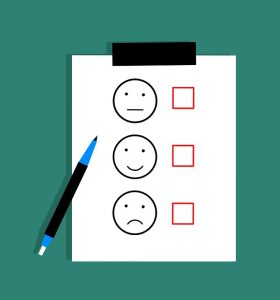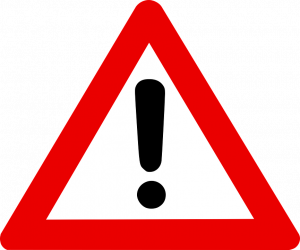Assessments of learning:
 |
In-term exams (12% & 15%): There will be two non-cumulative midterms: on May 26 (Ch. 1, 2, 4, 8, 9, 7 [Introduction to Question wording, inclusive]) and Jun 9 (Ch. 3, 5, 10-12) |

|
Peer Evaluations Completion (2 x 1%): To encourage everyone to contribute to the group project, all of you will be able to anonymously evaluate each other and have it count towards your group members’ participation marks. Merely completing a set of anonymous evaluations will also give you 1%. The first set (May 28) is formative (i.e. only provides feedback, does not count for evaluee’s marks). The second set (Jun 21) is summative (i.e. counts towards evaluee’s marks – see Participation/Peer Evaluation in the section below). Both are due at 11:59 pm. |
 |
Lab component (35%): A lab component is integrated into the course to facilitate a collaborative group project. There will be 5 lab sessions during which you will meet with your group, guided by your assigned Teaching Fellow. All labs are mandatory. You will lose 2% for each lab for which you an unexcused absence – you can request for absence with a form available on Canvas -> Misc. Course Content Module.
Over the course of these sessions, you and your group will come up with, and empirically test, a hypothesis. At the end of the year, your group will present the results at a poster session that may be attended by other faculty and university administrators. Your lab component grade breaks down as follows:
|
 |
Research Experience (5%): Given the research-focused nature of this course, we ask that you participate in 4 credits’ worth of studies from the Human Subject Pool (HSP) at the Department of Psychology. You can access studies at: https://ubc-psych.sona-systems.com/. You need an active HSP account for this; if you do not have one, the website will tell you how. More information about the HSP can be found at here. You also obtain 1% for completing the Tri-Council Policy Statement (TCPS) ethics tutorial – mandatory for anyone involved in research that uses human subjects (including yours), and is due May 29. You can access the tutorial here: http://tcps2core.ca/welcome Instead of HSP studies, Students may write 500-word summaries of empirical articles from the journal Psychological Science (published after 2000). Each summary counts for 1%, and should include the introduction, methods, results, and discussion sections of the article. If you opt to write these summaries instead, you must still create an HSP account and register it under our course section. You must submit a copy of your summaries to Turnitin (ID and password information can be found in the HSP Participant Information package here) by the 2nd last week of classes |
 |
Final (30%): The final exam will be cumulative of all materials covered throughout the term. The date, time, and location of your final exam will be determined by the Office of the Registrar. Please check the Student Services Centre website for more details once the exam schedule has been released. Do not make plans for finals week prior to the release of the exam schedule as accommodations will not be made for plans made before exam details have been released. |
 |
Early Alert (1%): Students who are in need of help (counselling, financial, housing, etc.) may not seek the necessary services for help for various reasons, including lacking knowledge of appropriate services. This UBC initiative provides aid to these students as early as possible by allowing me to better connect such students to the relevant resources. Students can, thus, get the support they need before problems become too onerous. As a supporter of this initiative, I ask that you watch the brief video about it and read the brief description on the course’s Canvas website, and put down your name to acknowledge that you have read it (which will give you the 1%). This means neither that you support this initiative, nor that you intend to use it, only that you have read it and understood what it is. This is due Jun 2 at 11:59 pm. If you have any questions or concerns, please do not hesitate to talk to me |
*All written work for this course MUST be original, and written independently. UBC subscribes to the Turn-It-In system, which compares submitted work to other sources on its database (including work submitted by your peers) to check for potential plagiarism. Plagiarism is a serious offense, it includes self-plagiarism (i.e. submitting/copying work that you had previously submitted), and shall also be dealt with seriously. Submissions to Canvas are automatically checked through the integrated Turnitin database.
All images on this page have been licensed under CC0 Creative Commmons license.